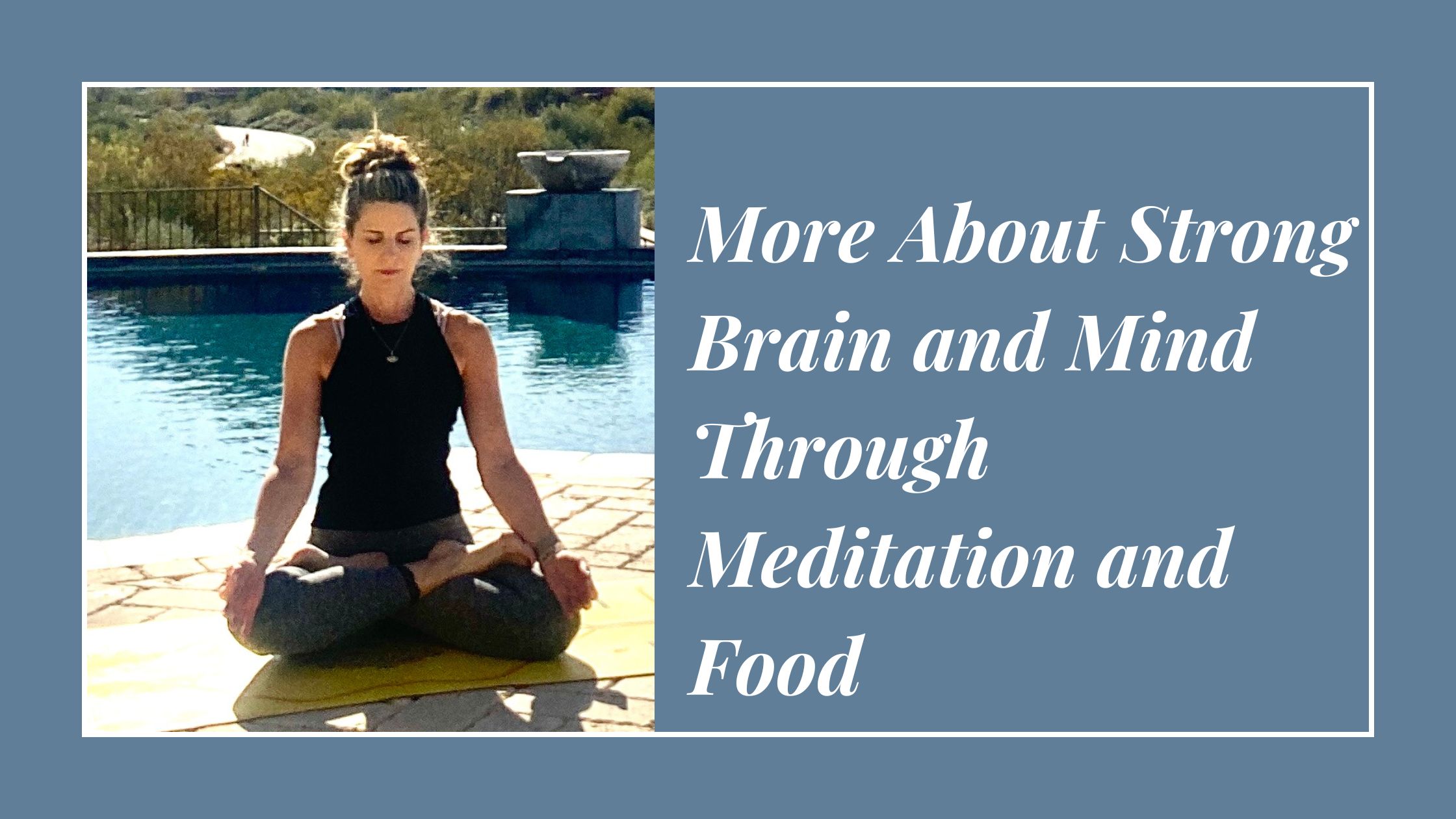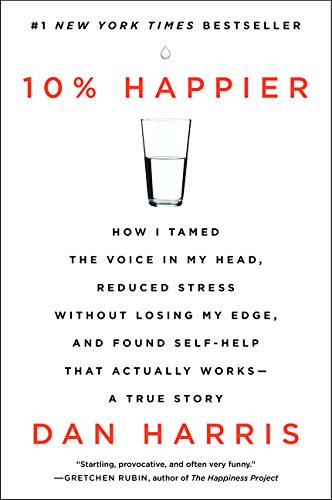We’re talking about our beautiful brains this month and how we can keep them strong through meditation and food.
As I mentioned in my last newsletter, having a meditation practice helped me get through a major concussion about six weeks ago. If you missed this newsletter, click here to read about my experience.
Stress is a part of all of our lives. At times stress can be good. However, when it is constant, it can wreak havoc on our bodies. I urge you to start a meditation practice, even if it’s only for one minute a day. Richard Davidson, founder of the Center for Healthy Minds at the University of Wisconsin-Madison, says he “is not surprised that so many neuroscience studies are elucidating the neural mechanisms underlying meditation’s beneficial effects.” He continues, “taken together, there is strong evidence that a regular, consistent meditative practice offers a lot of direct benefits to the brain – and, by extension, to your psychological and emotional well-being. That’s why you shouldn’t be surprised if your primary care provider starts mentioning mindfulness techniques at your next yearly check-up.” – Brainfacts.org
If you want to read more on the benefits of a regular meditation practice, click here for a great article.
One inspiring cue:
BED MEDITATION PART 2
Practice your bed meditation as I shared in my last newsletter. This week, feel your heartbeat as you sit and breathe.
Why?
Feeling your heartbeat brings you in touch with your internal body. “As technology fast-tracks communication, actions, and reactions into warp speed, those in the mental health space and the greater public are resurfacing the need to pause, slow things down, and do what technology can’t do: return to the senses as a source of grounding and recalibration. This includes the practice of present moment awareness. And it’s not hedonism (acting on whatever feels pleasurable or brings happiness). Present moment awareness isn’t something you do or don’t do. Rather, it’s how you observe your inner self at any given moment in time.” – Eckhart Tolle
One inspiring tip:
You don’t need to feel your heartbeat the whole time you are meditating. You can use it as a tool to come back to when you find your mind wandering away from the present moment.
One more thing before we get to the Nutrition Nugget for this week. I read the book 10% Happier a long time ago and still think about it to this day. Dan Harris is the author who shares his struggles in life, including a small meltdown he had on the set of The Today Show (yes, that Dan Harris). With great humor and wit, he conveys how his connection with meditation helped him get through multiple challenges and increase the quality of his life – about 10% =). I actually listened to the book, which he narrates himself, and found his delivery hilarious. Click here or on the image below to go to my SHOP page to get a copy of the book!
One inspiring song:
“Breathing Space” by Sacred Earth
**try listening while meditating
One inspiring quote:
“The mind is like water. When it’s turbulent, it’s difficult to see. When it’s calm, everything becomes clear.”
– Unknown
Nutrition nugget:
HERBS FOR BRAIN HEALTH
These herbs and their benefits are recommended for brain health by Barlow Herbal, who has 25+ years of experience in herbal wisdom. As always, you should consult with your health care provider, especially if you are on any medications.
Ashwagandha: contains powerful antioxidants that destroy the free radicals that cause aging. The herb is also able to improve attention, information processing speed, and mental skills.
Ginko Biloba: supports cognitive brain activity by improving memory and focus and increases vascular dilation, blood flow, and the health of blood vessels. Also known to help with common mood disorders such as anxiety and depression and can decrease symptoms caused by ear disorders such as hearing loss, dizziness, and tinnitus.
Ginseng: Chinese ginseng is powerful and known to generate energy, improve immunity, stimulate blood flow, negate stress, and guard against early aging.
Gotu Kola: well-known for its potential to improve cognition and sharpen memory. A study published in the journal of Alzheimer’s disease revealed that Gotu Kola may be able to improve memory at the molecular level by enhancing the activity of a pathway that is associated with long-term memory formation.
Periwinkle: the leaves and seeds of the Periwinkle contain vincamine, a precursor to the chemical vinpocetine, which is a powerful free radical scavenger. Vinpocetine may also help to prevent senility and dementia by preventing damage to the blood vessels in the brain that are caused by free radicals. Vinpocetine boosts circulation to the brain and improves the brain’s ability to absorb nutrients that help brain function.
Keep up the great work with your daily meditation practice and try to add some brain-boosting herbs to your diet! Here’s to your brain health!!


